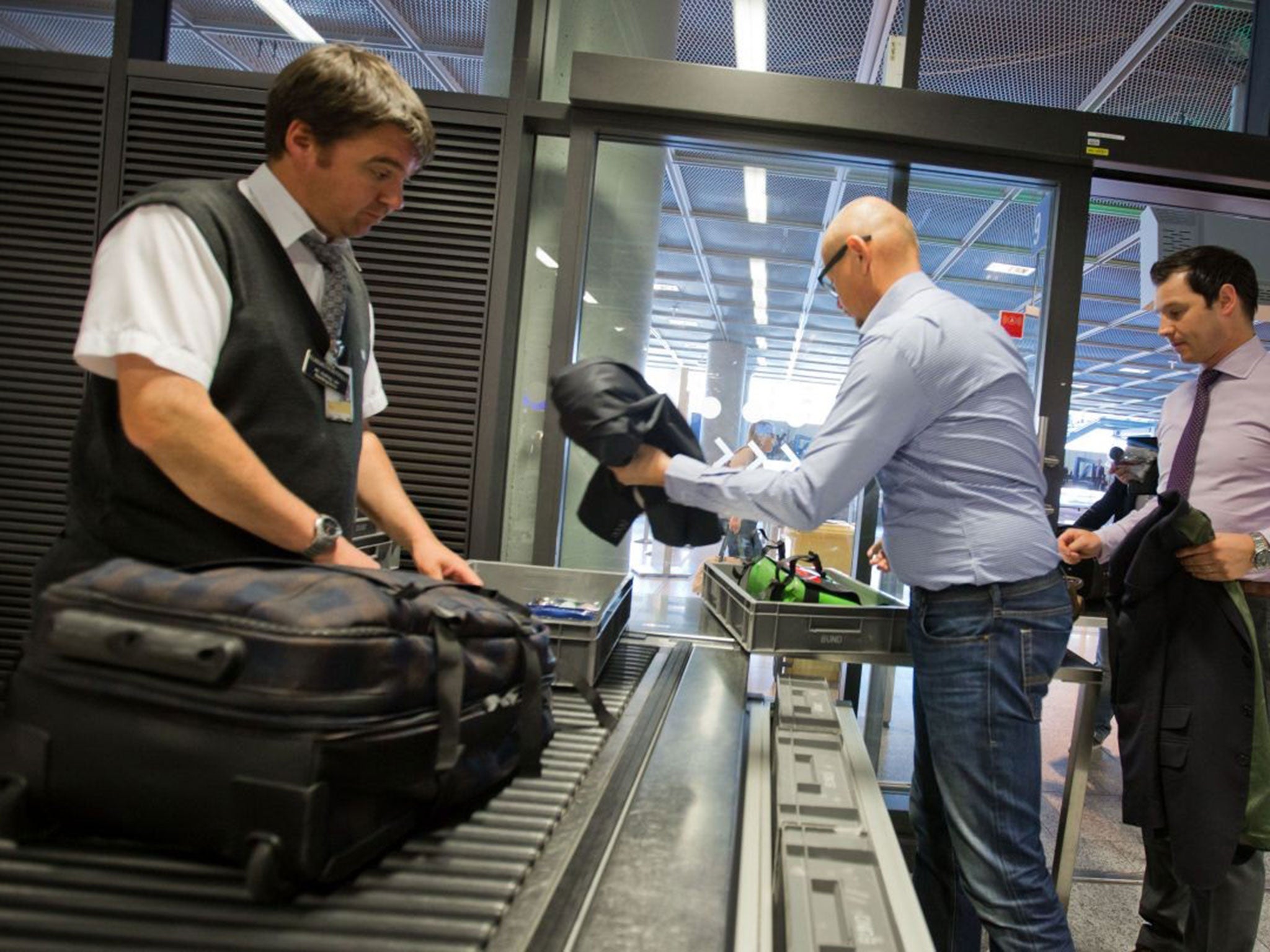Uncharged electronic devices Q&A: How UK airport security changes to smartphones and tablets will affect you
British Airways and Virgin Atlantic urge everyone to take precautions against batteries running down

As the summer holiday rush gets under way, aviation security is tightening. Just as transatlantic travellers from Britain were getting used to new rules on electronic equipment for flights to the US, the Department for Transport has announced that passengers flying to and from the UK must be ready to power up devices, from mobile phones to laptop computers – or see them banned from the cabin.
Q What’s led to this alert?
The first development was nine days ago with a warning from the US authorities about a credible threat to transatlantic aviation: specifically, an attempt to down a plane by smuggling explosives on board. The Americans stipulated that all electronic devices must be powered up – because the intelligence suggested that the material for a bomb could be implanted in the battery compartment of a mobile phone or computer.
It was originally only for flights from Europe and the Middle East to the US. Now the UK government evidently believes that the threat is more widespread, and that it affects many more possible flights than previously believed.
Q So what’s changed?
The Department for Transport says: “Passengers on some routes into and out of the UK may now also be required to show that electronic devices in their hand luggage are powered up or face not being allowed to bring the device onto the aircraft”.
In other words, the rule for US-bound flights is being extended to all international flights starting or ending in Britain.
The scale of the change is dramatic. Previously there were up to 20,000 passengers a day affected – those flying from the UK to the US. That has now magnified to close to 1 million passengers on a peak summer day for flying to and from British airports.
Q And what does it mean for travellers?
There is no way of knowing whether a particular flight is one of those affected. It is unfeasible for every passenger on every flight to be checked – the resources are simply not available.The vast majority won’t notice anything: you will just go through the normal central search after check-in, go to the gate and board your plane.
My understanding is that it won’t be a random one in 10 of all passengers, but instead everyone on specific departures. Only a relatively small number of flights will see passengers go through the “switch on your device” check. If you are subject to an extra check at the gate, your cabin baggage will be looked at again, and any electronic gear must be capable of powering up or you won’t be allowed to travel with it.
Q Do you have any idea about destinations?
It seems unlikely that a Manchester-Malaga no-frills flight, or a Glasgow-Corfu charter, could be picked for extra attention. But that possibility cannot be ruled out. However, it is understood that domestic flights are not affected, and that particular attention may be paid to parts of the world with a recent history of terrorism. That could include Egypt, Kenya and Pakistan.
Q Supposing you can’t power up the device: what next?
Many airlines are still puzzling it out. British Airways and Virgin Atlantic are ahead of the pack, because they had to put policies in place for transatlantic flights. Their plans are similar. They urge everyone to take precautions against batteries running down, but if your device fails to power up they’ll re-book you on the next available flight - or let you leave the device behind, and make arrangements for you to pick it up when you return or courier it to an address you nominate.
Q If I don't get re-united with my valuable device, can I claim on insurance?
Most unlikely: the new security regime has had plenty of publicity, and therefore a travel insurer is unlikely to look kindly on cases of inadvertent loss. Additionally, if you decide not to travel because the heightened security alarms you, a claim for cancellation is unlikely to be met.
Q So what’s your advice?
Check in as normal; do not allow extra time. And pack all devices in checked-in baggage, unless you are 100 per confident there will be sufficient power to pass the switch-on test.
Subscribe to Independent Premium to bookmark this article
Want to bookmark your favourite articles and stories to read or reference later? Start your Independent Premium subscription today.

Join our commenting forum
Join thought-provoking conversations, follow other Independent readers and see their replies